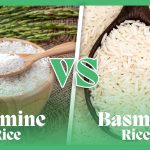Welcome to the colorful world of non-alcoholic drinks, where hydration meets flavor. From the thirst-quenching water to the refreshing fruit juices, from the vibrant mocktails to energizing sports drinks, these beverages offer a variety of flavors and tastes. Additionally, non-alcoholic drinks provide tons of essential nutrients, including vitamins, minerals, antioxidants, and phytochemicals that extend their health benefits to a holistic level.
Nutrition in non-alcoholic beverages plays a vital role in overall diet and well-being. While often overlooked, these beverages provide a plethora of health benefits necessary for the sustenance of a healthy life. So, in this article, we dig deep into the nutritional perspective of non-alcoholic beverages and uncover all the incredible health benefits and side effects they offer!

Importance of hydration:
The most basic function of non-alcoholic beverages is hydration. Water is the primary ingredient of these drinks, and staying hydrated is essential for maintaining normal body functions, temperature, and overall health.
Hydration is the key to physical and mental health, as these beverages significantly contribute to maintaining the required body hydration.
Key nutrients in non-alcoholic beverages:
Non-alcoholic drinks hide a plethora of essential nutrients ready to benefit the body in multiple ways. Let us dissect all the nutrients hidden in the liquidly layers of these delicious beverages:
Vitamins:
Among vitamins, vitamins C and B are the most abundant in non-alcoholic drinks.
Vitamin C:
It is found in citrus juices and boosts the immune system, helping in wound healing and skin health.
Vitamin B-complex:
Energy drinks and herbal teas contain the most B6 and B12 that help in energy production and metabolism.
Minerals:
Moving on to minerals, the abundant vitamins in these beverages are calcium and potassium.
Calcium:
Drinks with milk or other dairy products are excellent sources of calcium that aid in bone health, muscle functioning, and nerve signaling.
Potassium:
Certain fruit juices or coconut water is high in potassium essential for maintaining normal blood pressure and muscle contractions.
Phytochemicals:
Phytochemicals contribute to a wide range of health benefits, making these drinks healthy and nutritious. Some of the major phytochemicals in non-alcoholic beverages are:
Polyphenols:
Abundant in green and black tea and some fruit juices, polyphenols reduce oxidative stress in the body.
Flavonoids:
Grape juice is rich in flavonoids that have anti-inflammatory and heart-protective properties.
Lycopene:
Found in tomato juice, lycopene promotes heart health and reduces the risk of some cancers.
Anthocyanins:
Anthocyanins are widely present in fruits and vegetables and hold anti-inflammatory and antioxidant properties. They improve cognitive function, protect against age-related cognitive decline, and reduce the risk of cardiovascular diseases.
Dietary fiber:
Although lower than in whole fruits and vegetables, fruits and vegetable juices contain dietary fiber essential for digestive health.
Electrolytes:
Sports drinks are good sources of potassium and sodium necessary for hydration and maintaining body fluid balance.
Let us overview all the non-alcoholic drinks one by one:
Carbonated drinks:
Universally loved fizzy or carbonated drinks are non-alcoholic beverages that captivate our taste buds and are comprised of carbonated water, sweeteners, corrosives, flavoring, and color. They first came into being in the late 1800s, but it was not until 1886 when cola was introduced to the world that shook up the world’s beverage norms. It soon became everyone’s favorite drink and made way for more brands of such sweetened carbonated drinks.
While they are savored by millions around the world, they come with a nutritional profile that raises major health concerns. The high caloric and sugar content of carbonated beverages causes weight gain, obesity, type 2 diabetes, and fat accumulation in the liver. Carbonated drinks are often termed “empty calories” as they provide little to no essential nutrients.
Carbonated drinks have a decent amount of caffeine that may exert both positive and negative effects. On one hand, caffeine induces alertness while, on the other hand, excess consumption causes insomnia, jitterness, and increased heart rate. In addition, artificial sweeteners like aspartame, saccharin, and sucralose in carbonated drinks may pose potential negative effects like metabolic disturbances and alterations in gut microbiota.
While occasional consumption of carbonated beverages is alright, regular intake may affect the body’s physiological processes. Opting for healthier alternatives is the key to lessening the consumption of these drinks. Some healthy alternatives to carbonated drinks are sparkling water, green tea, flavor-infused water, fruit and vegetable juices, lemon-lime soda, and coconut water.
Making informed decisions, reading the labels before consumption, and choosing healthier substitutes can help reduce the risk of developing major diseases and improve overall quality of life.

Fruit juices:
Fruit juices are not just liquids but a composition of flavors, tastes, aromas, and colors that not only fascinate our senses but nourish our bodies. From the zesty flavor of citrus fruits to the sweet taste of berries and exotic fruits, fruit juices provide taste and quench our thirst. But beyond their refreshing flavor, they hide a plethora of nutrients and antioxidants that offer a broad spectrum of health benefits. From their role in hydrating the body to boosting the immune system and supplying essential vitamins and minerals, a colorful, refreshing glass of fruit juice does it all on its own.
They are often considered as the healthier alternatives to sugary carbonated drinks, but their nutrient composition varies depending on the type of fruit and other additional ingredients. Some frequently available nutrients in fruit juices are vitamin C, vitamin A, potassium, calcium, magnesium, folate, polyphenols, and natural sugars. Vitamin C in fruit juices boost the immune system, while potassium and other antioxidants improve heart health by lowering blood pressure and cholesterol levels.
Vitamin A and beta-carotene promote skin health by protecting the skin from UV radiation and reducing signs of aging. The abundance of antioxidants and phytonutrients supports cognitive health by improving memory and reducing age-related cognitive decline while the calcium in some fruit juices aid in bone health. Furthermore, fruit juices are an excellent addition to everyday diet for improving fluid intake as they maintain hydration.
While fruit juices are a convenient way to incorporate vital nutrients into your diet, it is essential to note that they can be high in calories and sugars while low in dietary fibers, unlike whole fruits. So, portion size and caloric intake need to be kept under check while consuming these delicious juices.
In conclusion, whether you kick start your summer mornings with a refreshing drink or rejuvenate your body with the nutrients in the afternoon, fruit juices are here to serve your day. Consuming them as part of everyday diet can help in reaping the countless health benefits without overburdening the body with extra calories and sugars.

Vegetable juices:
Vegetable juicing has recently emerged as a powerful approach in the realm of nutrition and health among the countless new health trends. They are not only flavourful but nutritious ways of incorporating vitamins and minerals into your everyday diet. From the lively greens of the spinach and kale to the bright hues of the carrots and beets, the possibilities of making healthy and delicious juices are never-ending.
Vegetable juicing is not just a passing trend, but rather a holistic approach to a healthier life. Abundant in many vitamins like A, C, and K to rich in essential minerals like potassium, calcium, and magnesium. The vitamin A in carrot and spinach juices helps improve vision, immune system, and skin, while the vitamin C in kale, broccoli, and spinach juices fight against infections and aid in wound healing. What’s more, the vitamin K in leafy green juices aids in blood clotting and cardiovascular health. Among minerals, the potassium, calcium, and magnesium in green leafy juices regulate blood pressure, and muscle contractions, strengthen bones, and aid in energy production and nerve transmission.
The polyphenols that act as antioxidants in these veggie juices combat the free radicals, reduce oxidative stress, and prevent chronic diseases. Although the dietary fiber content in veggie juices is compromised, juices made from whole vegetables still contain some amount of fiber that improves digestive health and regulates blood glucose levels. The utmost benefit of consuming vegetable juices is their low-calorie content, highly suitable for people who are managing their weight.
While vegetable juices offer countless health benefits, it is important to consider the many factors that come with consuming them such as sugar content, possible drug interaction, and individual needs. Incorporating a variety of vegetables into your juice routine can only benefit from the many benefits they offer!

Milk:
A fundamental part of humans’ diet for centuries, milk is a staple in every household around the world. The rich creamy-white color of milk hides a plethora of nutrients that provide nourishment from infancy to adulthood. Produced by the mammary glands of prominent animals such as cows, goats, sheep, and humans, milk consists of macronutrients like carbohydrates, proteins, and fats with a wide range of micronutrients (vitamins and minerals) and is considered nature’s most complete meal.
Milk is a complete protein source rendering all nine essential amino acids necessary for muscle growth, immune function, and hormone production. The carbohydrates from milk come from lactose, an energy source for the body. Milk fat is a combination of unsaturated and saturated fats, including omega-2 fatty acids that aid in heart and brain health. Among micronutrients, milk is a good source of vitamin A, vitamin D, vitamin B, calcium, potassium, phosphorus, choline, and selenium.
The most important function of milk minerals (calcium and phosphorus) is keeping bones strong and healthy, while potassium lowers blood pressure and fluid balance. While milk is an essential food group to be added to our everyday diet, it may also pose some side effects like lactose intolerance, milk allergy, hormonal imbalances, acne, and weight gain.
Overall, milk is a nutrient-rich beverage that offers a wide range of essential nutrients including both macronutrients and micronutrients that provide tons of health benefits rendering it an important food group in our diet.

Mocktails:
In today’s health-conscious world, there has been an increase in choosing a healthier lifestyle with the majority of people shifting towards choosing non-alcoholic drinks. This rising trend has paved the way for mocktails- non-alcoholic beverages that provide similar taste and texture but without the intoxicating effect. Mocktails are simply liquor-free cocktails. Mocktails are not juices or cocktails and require the craft of an experienced bartender to mix the ingredients in an advanced manner. While mocktails are non-alcoholic, their nutrient profile varies depending on the ingredients such as fruits, syrups, sodas, and garnishes.
Mocktails are made with fresh juices and natural sweeteners like honey or agave nectar that may provide some potent health benefits to the body but may not be calorie and sugar-dense, unsuitable for weight maintenance and type 2- diabetes. Some mocktails may contain added sugars in the form of syrups and sodas that pose additional harmful effects on the body. The fruit juices and herbs and garnished in mocktails contain essential vitamins and minerals beneficial for boosting immune function, skin health, and may offer antioxidant potential. A significant function of mocktails is providing hydration as they contain a good amount of water and may maintain body fluid balance.
Some soda and tonic water containing mocktails may be high in sodium and caffeine and excess caffeine consumption may cause increased heart rate, insomnia, digestive issues, and nervousness. Apart from that acidic and citrus ingredients or carbonated mixers can lead to digestive issues like heartburn and acid reflux. A way to minimize the health considerations of mocktails is to opt for healthier ingredients like whole fruits and fruit juices, natural sweeteners, and preservatives. Portion control is another mindful way of managing calorie and sugar intake.
In conclusion, mocktails are a flavourful and delicious way to enjoy festive non-alcoholic drinks. While they offer a range of vitamins and minerals, it is essential to be mindful of their consumption opt for healthy alternative ingredients, and observe portion control to enjoy the maximum health benefits of these colourful drinks.

Coffee:
Widely loved all around the world, coffee is one of the most consumed beverages known for its strong aroma and energizing effect. A key breakfast beverage drank for its bold flavor and stimulating properties, coffee holds a wide range of nutritional properties necessary for the overall health and well-being of the individual.
Coffee is a rich source of polyphenols and antioxidants that neutralize free radicals, lower oxidative stress, and protect against major chronic diseases. A polyphenol, chlorogenic acid has anti-inflammatory, anti-diabetic, and antioxidant properties. The vitamins B2 and B5 in coffee help in energy metabolism and, the production of red blood cells, and boost the nervous system. Furthermore, coffee also provides potassium and magnesium necessary for lowering blood pressure and muscle contraction.
Regular consumption of black coffee improves mental alertness, cognitive function, and athletic performance, and lowers the risk of metabolic syndrome. On the other hand, overconsumption of coffee causes insomnia, jitteriness, increased heart rate, digestive issues, and increased anxiety. Moreover, coffee consumption may also interfere with calcium absorption increasing the risk of developing osteoporosis.
All in all, coffee is a key beverage that offers tons of health benefits upon moderate consumption. It’s necessary to be mindful of excess coffee intake as it may pose some undesirable health implications on the body.

Tea:
Tea is a preferred beverage worldwide for its taste, aroma, calming effects, and health effects. Whether the tea is black, green, herbal, or white, it has its sea of nutrients that offer a wide variety of health benefits to the body.
Unsweetened, plain tea is calorie-free with less or no proteins and fats while also low in carbohydrates. They are rich in flavonoids and catechins that have antioxidant potential and provide anti-inflammatory and anti-diabetic health effects on the body. Furthermore, the vitamin C in black and green tea improves immune function and wound healing while potassium and manganese found in trace amounts improves bone health and muscle function.
Regular consumption of unsweetened tea is associated with cardiovascular health, weight maintenance, cognitive health, and digestive health. Green tea is particularly beneficial in increasing metabolism and reducing extra weight while peppermint, ginger, and chamomile tea help improve digestive health.
Apart from that, tea consumption is associated with some side effects including caffeine sensitivity, iron malabsorption due to the presence of tannins leading to iron deficiency anemia, and allergies and sensitivities in some individuals.
In conclusion, tea is a flavourful way of receiving health benefits while keeping in mind the potential side effects and making amends to minimize their effect.

Milkshakes:
Equally enjoyed by children and adults, milkshakes are creamy beverages made from milk, ice, and syrups. Milkshake was first developed as a health drink composed of eggs, whiskey, and some other ingredients, but in the 1990s it turned into an ice-cream drink equally popular today. They come in a variety of flavors including chocolate, vanilla, banana, strawberry, mocha, mint, and many more.
Milkshakes are generally high in calories, fats, and carbohydrates due to the ingredients used like milk, ice cream, cream, flavored syrups, and fruits. Furthermore, they are good sources of calcium, vitamin D, vitamin A, and vitamin B2. Although the calcium content depends on the type of milk used, however, it still helps in bone strength, muscle functioning, and nerve signaling.
Milkshakes are high in sugar and saturated fats as discussed earlier; the high sugar content may cause weight gain, insulin resistance, and type 2 diabetes while the saturated fats may contribute to high LDL levels and heart diseases.
Portion control, low-fat ingredients and the addition of nutrient-dense foods like fruits, nuts, seeds, and protein powder is a great way to manage the intake of sugar and saturated fats from milkshakes and give the milkshakes a healthier twist.
The term “moderation is key” suits best in terms of milkshakes, as optimal consumption can be beneficial for the body, however, excess intake of creamy and calorie-rich milkshakes may contribute to the development of a variety of diseases.

Smoothies:
Smoothies, a cousin to milkshakes, are a convenient option to include whole fruits, veggies, and other nutrient-rich ingredients in your diet. They are prepared by pureeing ingredients in a blender that has a liquid base (fruit juice, milk, yogurt, ice cream) while other ingredients include fruits, veggies, crushed ice, whey powder, and more.
Similar to milkshakes, smoothies are high in calories, proteins, fats, and carbohydrates; however the ingredients used are relatively healthier. Smoothies made with Greek yogurt or plant-based milk, protein powder, nuts, and seeds can be a great way to include protein in your diet. Contrary to milkshakes, smoothies are high in fats but not in saturated fats, while the high carbohydrates in smoothies mostly from complex carbohydrates.
Vitamin C, calcium, potassium, and vitamin D are some of the abundant nutrients available in smoothies. Smoothies including citrus fruits, berries, and mango are high in vitamin C strengthen the immune system, produce collagen, and improve skin health. Bananas, leafy green veggies, and avocadoes are good sources of potassium that lower blood pressure, thereby reducing the risk of cardiovascular diseases.
Smoothies made from dairy and dairy products contain a considerable amount of calcium and vitamin D important for bone health and muscle function. Including fiber-rich fruits, veggies, and seeds in smoothies can improve digestive health and support gut microbiota along with providing hydration. Fruits and veggies in smoothies increase the antioxidants that fight against free radicals and protect the body from chronic diseases.
While smoothies can be a great way to gain benefits from the healthy ingredients used, they may still pose some side effects due to added sugars from sweetened yogurt, syrups, honey, and many more. It is essential to be mindful of the portion size and include nutrient-rich ingredients in your smoothies rather than focusing only on calorie-dense ingredients.
Overall, smoothies can be a delicious and convenient way to add extra nutrients to your diet if prepared with high-quality ingredients and avoid unhealthy and disease-causing components.

Hot chocolate:
Hot chocolate or hot cocoa is a worldwide famous beverage that feels like a warm hug on a cold winter night. This creamy textured drink is made of melted chocolate, hot milk or water, and a sweetener, finished with a whipping cream and marshmallows.
Hot chocolate is relatively high in calories, carbohydrates, and fats rendering it more of an indulgent drink than a regular addition to a balanced diet. A typical cup of hot chocolate prepared from whole milk, cocoa powder, and sugar contains 150-250 calories, while the fat mostly comes from cream and milk used which may contribute to elevated LDL levels and cardiovascular disorders upon regular consumption. The added sugars from cocoa powder and sweeteners make hot chocolate high in simple carbohydrates as well.
Calcium, iron, magnesium, and antioxidants are some of the prominent micronutrients found in hot chocolate. Calcium as we all know is essential for strong bones, while the cocoa powder contains iron and magnesium that aid in red blood cell production, oxygen transport, energy metabolism, and muscle function. Moreover, the antioxidants flavonols fight against free radicals, strengthen the heart, and improve cognitive function.
In addition, hot chocolate is high in added sugars from sugar, chocolate syrup, and flavored powder which may contribute to type-2 diabetes, weight gain, and other metabolic disorders upon frequent consumption. The milk and cream used in hot chocolate make them high in saturated fats increasing the risk of heart diseases by elevating LDL cholesterol levels. Portion control and the use of low-fat ingredients are two ways to reduce the likelihood of developing diseases.
All in all, hot chocolate is a delicious drink to enjoy on cold winter nights or special occasions. It may be high in calories, sugar, and fats, which can be reduced by observing portion control and using healthy alternative ingredients.

Sports drinks:
Sports drinks are specially designed beverages to restore glucose, fluids, and electrolytes lost during strenuous exercise. While sports drinks are advantageous for adults, they may not be suitable for an average person as they are high in calories and sugar.
Sports beverages are high in calories and carbohydrates typically in glucose, sucrose, and fructose as they are designed to be an immediate energy source for the body. The electrolytes sodium, potassium, calcium, and magnesium in sports beverages help keep fluid balance and nerve signaling during exercise. Vitamin C, B-complex, calcium, and phosphorus are some of the micronutrients present in sports drinks.
The high sugar content may be associated with developing insulin resistance and weight gain while consuming sports drinks with a regular diet without increasing physical activity can also lead to weight gain. Regular consumption of these sugary drinks may cause tooth decay and other dental issues.
The best way to minimize the potential risks of sports beverages is to consume them after long-term or intense exercise to help recover the fluid, electrolytes, and carbohydrates lost during exercise, while providing hydration and recovery at the same time and to avoid unnecessary sugar and calorie intake.

Energy drinks:
Energy drinks are a type of popular beverages that improve energy, mental alertness, and physical performance, particularly in athletes. These drinks contain stimulants mostly caffeine that provide the mental and physical stimulation they are marketed for.
Energy drinks are high in calories, carbohydrates from added sugars like glucose, sucrose, and high-fructose corn syrup, and caffeine. The caffeine content in these drinks may range from 50 to 300 mg depending on the brand and excess consumption may contribute to insomnia, elevated heart rate, increased blood pressure, and other side effects. Energy drinks are usually high in B vitamins particularly B3, B6, and B12 necessary for energy metabolism and cognitive well-being.
Too much caffeine can cause caffeine intoxication and may lead to serious health consequences, while the high sugar in energy drinks can contribute to weight gain and insulin resistance. Cardiovascular diseases are also one of the complications of energy drinks as caffeine causes high blood pressure, irregular heartbeat, and palpitations. High caffeine and other stimulants also affect mental health by increasing anxiety and panic attacks, particularly in people with anxiety disorders.
Energy drinks should be consumed in moderation before doing exercise or other physical activities for a temporary spike in energy levels. Furthermore, incorporating healthier alternatives like tea, black coffee, green tea, and herbal teas high in complex carbohydrates, proteins, and healthy fats are good ways to sustain energy and focus. Due to the high caffeine, energy, and sugar content, energy drinks are not suitable for children, pregnant and lactating women, and people with caffeine sensitivity issues.
In conclusion, energy drinks are an excellent way to provide a quick energy boost however, they should not be considered a substitute for a healthy and balanced diet. Indulging in these drinks every once in a while is alright, but making these a part of regular diets should not be encouraged.

Plant-based milk:
Plant-based milk is all the hype nowadays, extracted from a water-based plant. Also termed as non-dairy milk, it is made of almonds, oats, soy, coconuts, rice, and hemp each with its unique flavor, texture, and nutritional composition.
Non-dairy milks vary in their calories and fats depending on the type or brand. Almond and rice milk are relatively lower in fat while soy and coconut milk provide more fats. Apart from soy milk, plant-based milk is low in protein compared to cow’s milk, while the carbohydrates come from the plant’s natural sugars and starches. Calcium, vitamin D, vitamin B12, iron, and magnesium are some of the micronutrients found in these milks. Soy milk or fortified plant-based milks are good sources of vitamin B12 essential for red blood cell production and nerve function. The iron and magnesium play a role in oxygen production and energy metabolism.
Most of the plant milks are fortified with essential nutrients like vitamin D, calcium, and B12 however; it is essential to overview the label and choose the ones that are fortified. Moreover, always go for unsweetened and unflavoured plant milk to minimize the risk of weight gain and insulin resistance.
Plant-based milk is a great alternative for people with lactose intolerance and dairy allergies, however, make sure you choose the type of milk with great consideration after checking the labels carefully.

Soups and broths:
Soups and broths, our companions on cold winter nights, are warm and embracing dishes savored by people all over the world. They are made from a variety of ingredients like vegetables, chicken, meat, fish, legumes, and grains each with their unique flavor, texture, and health effects.
Soups and broths are usually low or moderate in calories; however, cream or meat-based soups have a high caloric content. Meat, fish, and legume-based broth are high in protein and fats, while veggie soups have higher carbohydrate content. They are good sources of vitamins and minerals including vitamins A, C, K, and B, potassium, magnesium, calcium, iron, and zinc depending on the type of ingredients used.
In addition, they may be high in sodium, added sugars, and unhealthy fats particularly the canned or restaurant ones which contribute to high blood pressure, and heart diseases upon frequent consumption. Homemade soups with healthy ingredients and observing portion control an excellent ways to enjoy the maximum health benefits of this delicious meal and minimize the risk of diseases.
Overall, a warm bowl of soup and broth can add extra flavor, texture, and nutrients in to your diet while being mindful of the unhealthy ingredients to prevent the development of diseases.

Water:
Water is an essential nutrient for maintaining all physiological processes like digestion, absorption, circulation, temperature regulation, and waste removal. While water does not contain calories, macronutrients, or micronutrients, however, it is essential for maintaining body hydration and overall well-being.
Water helps maintain hydration levels to support normal physiological processes, aids digestion, and absorption, prevents constipation, and supports the digestive process while also helping in the circulation of oxygen, nutrients, and hormones. Furthermore, water also plays a significant role in waste removal and flushes out all the toxins, wastes, and excess salts through urine and sweat.
The recommended daily intake of water is 8-12 cups for adults, which increases with physical activity, sweating, and hot weather. Inadequate water intake may cause headaches, dry skin, dizziness, and impaired performance. On the other hand, excess water intake can cause an electrolyte imbalance leading to low sodium levels in the body.
So, water is an essential nutrient for normal body functioning. The human body is composed of 70% water, rendering water an important fluid for the overall maintenance of a healthy body.

Ultimately, the exploration of non-alcoholic drinks reveals a story that drags far beyond hydration and refreshment. Ranging from fruit juices to teas and water, these beverages hide a myriad of nutrients that extend their health benefits to nourishing the body, providing immunity, boosting digestive health, and protecting against major chronic diseases. Non-alcoholic beverages not only provide a variety of flavors and textures but also cater to individual preferences and dietary choices, and one can enjoy the many benefits of these drinks by incorporating them into our everyday diet.









